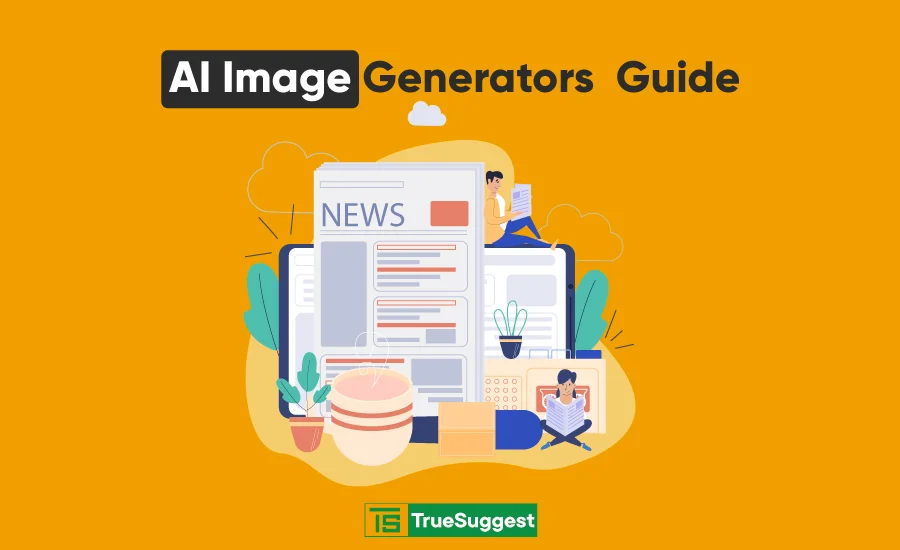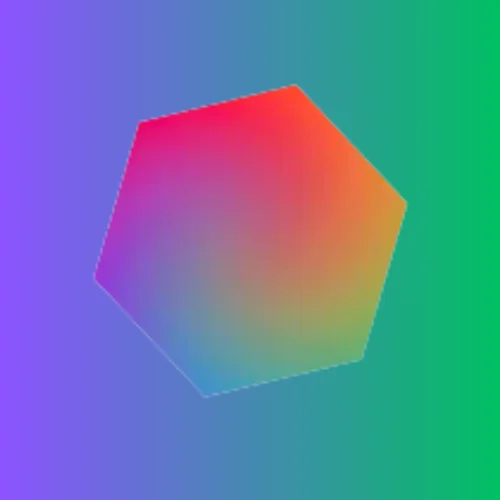What is an AI Image Generator

Artificial Intelligence (AI) has permeated various sectors, from healthcare to entertainment, revolutionising how tasks are performed and improving efficiency. Image generation stands out as one of the most fascinating among the numerous applications of AI. AI image generators can create visual content from scratch, mimicking the styles of famous artists or generating entirely new and unique pieces. This technology leverages sophisticated algorithms and vast datasets to produce images that can be indistinguishable from those created by human hands.
In this blog, we will learn what is AI image generator and how it works and why we need AI in this era.
What is AI image generation?
AI image generators use trained artificial neural networks to create images from scratch. These generators can produce original and realistic visuals based on natural language input. What sets them apart is their ability to blend styles, concepts, and attributes to generate artistic and contextually relevant imagery. This is all made possible through Generative AI, a subset of artificial intelligence focused on content creation.
AI image generators are trained on large datasets of images. During the training process, the algorithms learn different aspects and characteristics of the images in the datasets.
As a result, they can then generate new images that share similarities in style and content with the images in the training data.
There are various types of AI image generators, each with its own unique capabilities.
How AI Image Generators Work
An AI image generator utilizes an advanced machine learning algorithm called artificial neural networks (ANN) to produce new images. The ANN, which is based on biological neural networks, is trained on a large set of image-text pairs. It processes this data to learn about various aspects, such as Van Gogh's paintings, different colors, and the appearance of different objects.
Once it learns the patterns and styles from the existing data, the AI image generator can interpret any text input to create new images that mimic any art form. And it can do so in a matter of seconds, allowing the user to see the resulting AI image almost immediately.
Applications of AI Image Generators
Art and Design
AI image generators have found a significant place in the art world. Artists and designers use these tools to create new works, explore different styles, and even complete unfinished pieces. Some AI-generated artworks have been sold for substantial amounts at auctions, demonstrating the value and potential of this technology in the creative industry.
Advertising and Marketing
In advertising, visual content is crucial. AI image generators enable marketers to produce a vast array of visuals tailored to specific campaigns, saving time and resources. They can generate product images, promotional graphics, and even social media content, all personalized to target audiences.
Entertainment and Media
The entertainment industry benefits from AI image generation in numerous ways. For instance, AI can create realistic backgrounds, characters, and special effects in films and video games. This technology enhances storytelling by providing filmmakers and game developers with innovative tools to bring their visions to life.
Fashion and E-Commerce
In fashion, AI image generators help designers experiment with new patterns and styles. E-commerce platforms use these tools to create product images, allowing for virtual try-ons and personalized shopping experiences. This not only improves customer engagement but also reduces the costs associated with traditional photoshoots.
Benefits of AI Image Generators-lets learn
Speed and Efficiency
One of the most significant advantages of AI image generators is the speed at which they can produce high-quality images. Traditional methods of image creation, such as photography and manual drawing, can be time-consuming. AI can generate images in a fraction of the time, making it an invaluable tool for industries that require rapid content production.
Cost-Effective
Creating images manually or through traditional digital means often involves significant costs, including hiring artists, photographers, and designers. AI image generators reduce these costs by automating the image creation process. This makes high-quality visual content more accessible to small businesses and startups with limited budgets.
Consistency and Customization
AI image generators can produce a consistent style across multiple images, which is essential for branding and marketing. They also offer a high degree of customization, allowing users to tweak parameters and generate images that meet specific requirements. This level of control ensures that the final output aligns perfectly with the intended vision.
Challenges and Ethical Considerations
Quality and Realism
Despite their advancements, AI image generators can sometimes produce images that lack the subtle nuances of human-created art. Ensuring high quality and realism remains a challenge, particularly in complex scenes that require a deep understanding of context and detail.
Copyright and Ownership
AI-generated images raise questions about copyright and ownership. Who owns the rights to an image created by an AI? Is it the developer of the AI, the user who inputs the prompts, or the AI itself? These questions are still being debated in legal and ethical circles.
Ethical Use
The potential for misuse of AI image generators is significant. They can be used to create deepfakes, manipulate public opinion, or generate explicit content. Ensuring ethical use involves establishing guidelines and regulations to prevent misuse while promoting beneficial applications.
Technological Advancements
The field of AI image generation is rapidly evolving. Future advancements may include more sophisticated models capable of understanding and creating complex scenes with higher accuracy. Improvements in AI training methods and the integration of additional sensory data (like text and audio) could further enhance the capabilities of these generators.
Broader Accessibility
As AI technology becomes more accessible, a wider range of industries and individuals will benefit from AI image generators. Tools that were once limited to large corporations and tech-savvy users are becoming user-friendly and affordable, democratizing access to powerful image creation technology.
Using AI image generators in content marketing
The world of content marketing has changed significantly in recent years. Instead of focusing on quantity, the emphasis is now on quality. While content SEO and traffic generation remain important, the primary focus has shifted towards creating engaging content that resonates with the audience.
Businesses have recognized the need to speed up content creation and distribution. Small and medium businesses without a large content team, including graphic designers or visual content creators, must not be left behind. This is where technology comes in. SMBs now have access to AI tools for marketing and content creation.
Artificial Intelligence (AI) tools have transformed the world of content marketing by streamlining the content workflow and automating numerous processes. If you're struggling to come up with creative content topics, there are AI content idea generators to help.
For assistance with overcoming creative blocks, there are AI content writing tools. When it comes to optimizing content for SEO, you can create complete content briefs using an AI SEO content brief generator. With an AI image generator, your content creation tool stack is nearly complete.
Integration with Other Technologies
AI image generators will likely integrate more seamlessly with other technologies, such as virtual reality (VR) and augmented reality (AR). This integration could revolutionize fields like gaming, education, and remote work, providing immersive and interactive experiences driven by AI-generated visuals.
Conclusion
AI image generators represent a significant leap forward in the field of artificial intelligence and digital art. Their ability to create high-quality, realistic images rapidly and cost-effectively opens up new possibilities across various industries. While challenges and ethical considerations remain, the potential benefits of this technology are immense. As AI continues to advance, the future of image generation promises to be even more innovative and transformative.






























